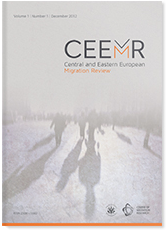The Principle of Complementarity in Polish Migration Law. Is It a Facade?
The Principle of Complementarity in Polish Migration Law. Is It a Facade?
Author(s): Paweł DąbrowskiSubject(s): Politics, Law, Constitution, Jurisprudence
Published by: Ośrodek Badań nad Migracjami / Uniwersytet Warszawski
Keywords: labour immigration; labour market test; complementarity principle; Poland
Summary/Abstract: The article presents an analysis of the real role of the complementarity principle and the reasons why immigration law is still based on this principle. The basic assumptions of the state’s attitude towards labour immigration were set out in a period when this kind of immigration to Poland was at a much smaller scale than currently. First and foremost, one of the basic premises is the complementarity of labour immigration (complementarity principle) with the labour market test as an element of the procedures, although with some exceptions. The mechanism of controlling the complementarity is obligatory and preventive. The current economic situation in Poland, including the conditions for the functioning of immigration law, is very different from the reality of that time. In view of growing shortages of Polish employees on the labour market one can doubt whether preventive enforcement of complementarity by law is needed. The complementarity of labour immigration to Poland is a socio-economic fact and legal guarantees to ensure this result seem obsolete. There are strong arguments to consider that opportunistic political motivations are the main reason against the rationalisation of legal regulations concerning immigration of workers. The complementarity principle has become a facade of restrictive immigration law, while allowing for its use in a way that ensures the access of immigrants to the labour market.
Journal: Central and Eastern European Migration Review
- Issue Year: 8/2019
- Issue No: 2
- Page Range: 161-174
- Page Count: 14
- Language: English

